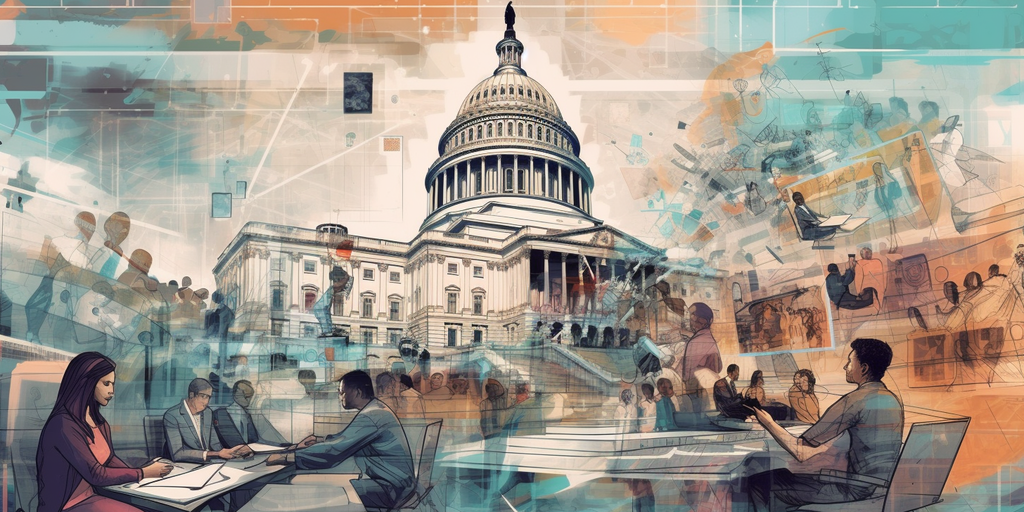Congress Introduces Bipartisan Bill to Regulate AI, Establish Federal Commission
A bipartisan bill has been introduced in Congress aiming to establish a federal commission on artificial intelligence (AI), taking a significant step towards regulating AI at the national level. The bill, known as H.R. 4223, was introduced by Representatives Ted Lieu and Anna Eshoo of California, along with Representative Ken Buck of Colorado. This move follows the UK’s recent introduction of a robust AI law last week.
The proposed legislation calls for the formation of a 20-person “blue-ribbon commission” comprised of representatives from government, industry, civil society, and the computer science field. This commission would work together to define a comprehensive regulatory strategy for AI.
While acknowledging the potential benefits of AI, such as technological advancements and economic growth, the bill’s sponsors express concerns about the risks associated with unregulated AI. Representative Ted Lieu emphasized the need for regulations to prevent potential harm. Similarly, Representative Ken Buck voiced his concern over the risks AI poses to national security and stressed the importance of expert consultation in addressing these challenges.
Under the bill, the President would appoint eight commissioners, while the remaining 12 would be chosen collectively by party leaders from both the House and Senate. The commission will have two years to produce three reports for policymakers, which will include recommendations on mitigating risks and potential harms posed by AI while safeguarding US technological innovation.
Although the bill encourages restraint in overarching legislation until the commission’s recommendations are presented, it includes provisions for interim congressional actions in discrete areas, particularly those related to national security.
In parallel with the US’s efforts, the European Union (EU) is diligently working on its AI legislation. The EU is developing a regulation to establish a European Artificial Intelligence Board, which will guide national authorities and work towards standardized application across EU countries.
The introduction of this bipartisan bill reflects the increasing interest and recognition of the need for AI regulations. OpenAI, a major player in the AI field, has been actively lobbying for AI rule-making in the US and other countries, emphasizing the importance of addressing the potential disruptions caused by AI in various sectors.
As AI regulation moves forward, ensuring impartiality and fairness in shaping AI policy becomes crucial. Lawmakers must confront the challenge of maintaining objectivity to establish an effective and equitable AI legislative framework.

